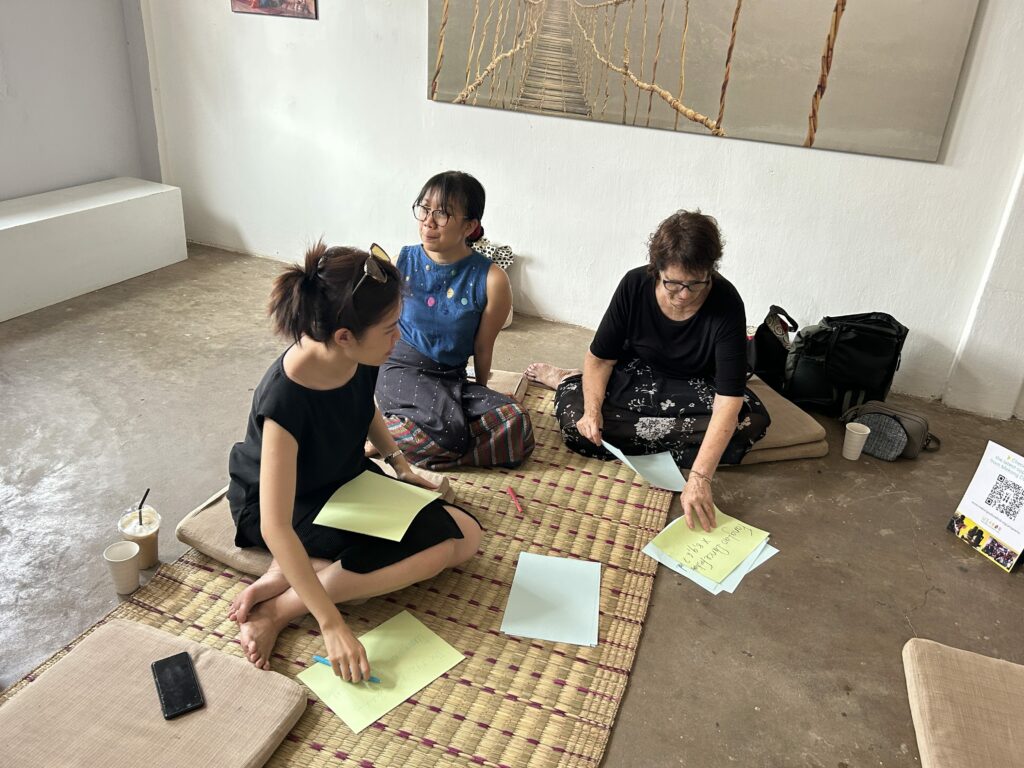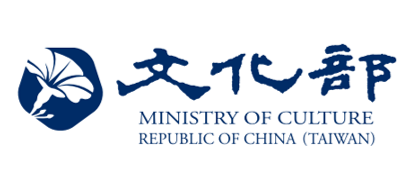Ethical Dilemmas in Arts Practice Training


ABOUT THE PROGRAM
Have you ever found yourself faced with an ethical dilemma in your arts practice? Have you navigated a difficult decision which had an ethical aspect to it and you still feel you could have resolved it better? Do you wish to co-create and collaborate more as part of your arts practice and wonder about some of the ethical issues you need to consider? Do you want to discuss these topics and more in a safe space where you can share learnings, experiences? If yes, this training workshop which uses storytelling, presentations, journaling, collaging and group discussions, could be for you.
If you have any questions about the program or the application, you can contact us at jennifer@mekongculturalhub.org
IMPORTANT INFORMATION
● Open call (Deadline: October 15th, 2023)
● Program overview
● Application form
ABOUT THE TRAINER
Ms Deirdre Prins-Solani is based in Cape Town, South Africa. She is a closet poet, dabbler in visual arts and avid reader. She has worked in museums, world heritage and professional capacity building in the cultural sector for more than two decades. She is a UNESCO facilitator in intangible cultural heritage (ICH or living heritage). She serves as a committee member of the ICH subcommittee for the Association of Critical Heritage Studies.
Ms Prins-Solani has conducted training and policy advisory services across the African continent, the Caribbean and the Asia-Pacific. Throughout 2022, she worked with Living Arts International (including MCH) on Embedding Ethical Practices.
FREQUENTLY ASKED QUESTIONS
Please can you tell us a bit more about the methodologies of the workshop?
Answer:
This workshop will help you to think carefully about your own practice, your approaches, and your ideas. We’ll find out what could be strengthened, what could be used to learn from each other, and lots of opportunities for discussion. Some of the methodologies we will use are talking through case studies, some provided by you as participants and some provided by me as the Facilitator. We will have conversations with each other as a group, and build a community of practice where we can share our mistakes with each other. There’s going to be lots of opportunities for self reflexivity.
What is your approach to exploring ethical dilemmas in arts practice?
Answer:
Based on my experiences working with different institutions and communities on ethics, or on projects where directly addressing ethical questions was core, for me there are three things that are essential to consider. These are: context, safe spaces and making change through the process of our arts practices. I will share more about each one below:
Context: In our conversations that we will be having over the days of our workshop, we will come again and again to discuss:
● What is the context?
● What does the context tell us about ethical practices?
● Are there particular philosophies and approaches to ethics and ethical practice as a way of being in the world?
Safe spaces: Safe spaces are where we’re not only able to talk about the mistakes we’ve made, but also able to discuss the ways in which we can repair some of the mistakes that we’ve made and how those lessons that we’ve learned from our mistakes, assist us in repairing and continuing to do our work. Safe spaces are not only about the conversations, but also about the discussion questions that we’re going to raise with each other. How do we consciously actively create safe spaces for difficult conversations like ethics?
Making change: Looking deeply at the ethics of how we practice the arts allows us to consider how we can make change through our processes of working, engaging and creating. We can pay attention beyond the final curated exhibition of artwork, or artefacts or stories, but also about possibilities for effecting change through the process of getting there.
What should I expect to be the outcome for me from this workshop?
Answer:
That’s a great question. This workshop will not provide answers…I am not present as an expert who knows everything. Rather, it is a careful and considerate approach to listening, exploring issues and asking sharp and clear questions which assist the participants in making a decision about an approach to the solution. It should strengthen your ability and confidence to navigate ethical dilemmas, by giving you skills and vocabulary to identify and articulate when you are facing these issues, and also by practising discussing these kinds of issues with peers. We hope you might also leave with a new community of friends and peers who you will be able to connect with after the workshop.
What should participants prepare or know in advance in order to build a safe space for conversation?
Answer:
Some very practical things that you can do include:
● During the application process please tell me
* Where you come from, what is your context
* The specific ways in which you would wish to feel safe in this cyberspace
* Do you wish to have anonymity when we are talking about a particular context?
* Do you wish to not have your name and photograph to be taken in our process?
* Do you wish to write separately to me in the chat or in an email?
* Do you wish to identify yourself in particular ways, for example your gender identity, a particular name, your location?
● The second is to say that in our conversations, and in our discussions that we will have, we emphasise privacy and confidentiality. What we discuss in our workshop period is not something to be shared with a wider audience. And that confidentiality is really important. In that we know that we are protected in what you’re saying and what you’re sharing with each other.
● The third thing we will be doing is trust building. Trust building doesn’t happen automatically. The time we will be together is very short, so we also need to build together a code of ethics at the start that governs the way that we interact with each other in cyberspace. Just the other day, I was having a conversation with a colleague of mine, who’s invited me to work with a community in my country that is deeply wounded by being marginalised for so many centuries. Any engagement with this community starts out with a lot of anger. And I was saying to my colleague, we need to listen to anger, knowing that it’s not at us but at a system and some others that have come before us. And then that process is a starting point to build trust.
OTHER TRAINING PROGRAMS
PARTNERS & SUPPORTERS
This program is possible thanks to the support of organisations and individuals including:
